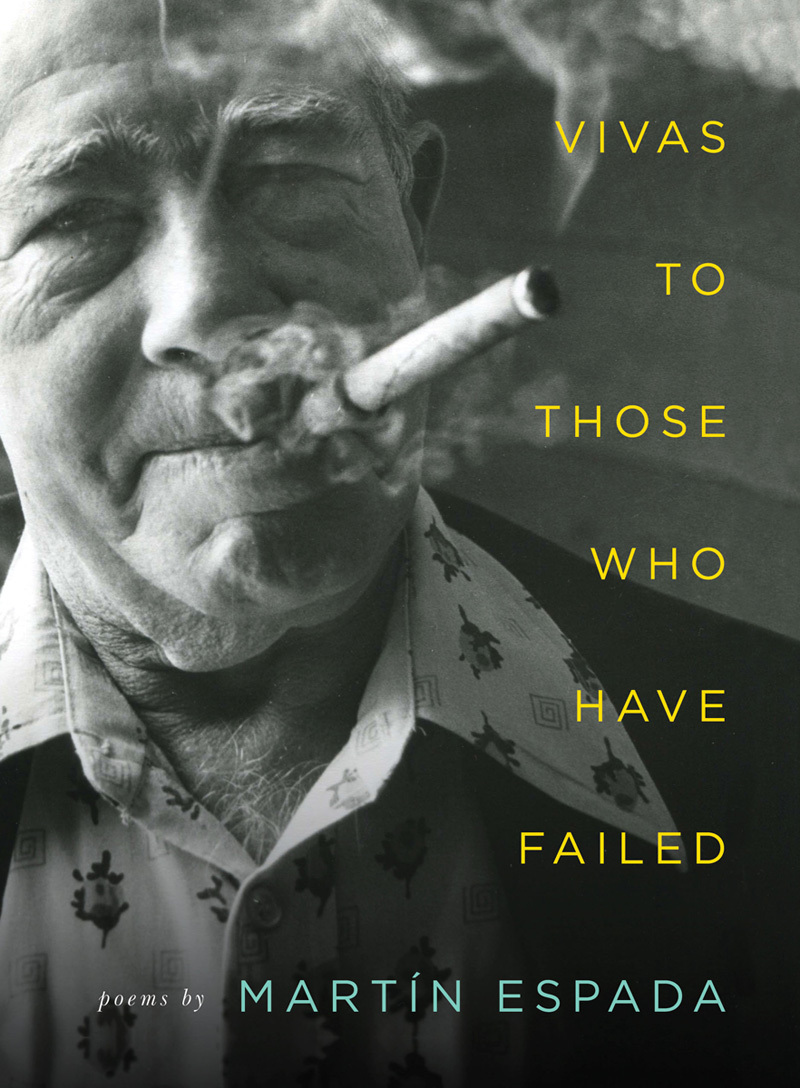
2016
First Published
4.23
Average Rating
96
Number of Pages
Award-winning poet Martín Espada gives voice to the spirit of endurance in the face of loss. In this powerful new collection of poems, Martín Espada articulates the transcendent vision of another, possible world. He invokes the words of Whitman in “Vivas to Those Who Have Failed,” a cycle of sonnets about the Paterson Silk Strike and the immigrant laborers who envisioned an eight-hour workday. At the heart of this volume is a series of ten poems about the death of the poet’s father. “El Moriviví” uses the metaphor of a plant that grows in Puerto Rico to celebrate the many lives of Frank Espada, community organizer, civil rights activist, and documentary photographer, from a jailhouse in Mississippi to the streets of Brooklyn. The son lyrically imagines his father’s return to a bay in Puerto Rico: “May the water glow blue as a hyacinth in your hands.” Other poems confront collective grief in the wake of the killings at the Sandy Hook Elementary School and police violence against people of color: “Heal the Cracks in the Bell of the World” urges us to “melt the bullets into bells.” Yet the poet also revels in the absurd, recalling his dubious career as a Shakespearean “actor,” finding madness and tenderness in the crowd at Fenway Park. In exquisitely wrought images, Espada’s poems show us the faces of Whitman’s “numberless unknown heroes.”
Avg Rating
4.23
Number of Ratings
217
5 STARS
47%
4 STARS
34%
3 STARS
15%
2 STARS
3%
1 STARS
1%
goodreads
Author

Martín Espada
Author · 17 books
Sandra Cisneros says: “Martín Espada is the Pablo Neruda of North American authors.” Espada was born in Brooklyn, New York in 1957. He has published thirteen books in all as a poet, essayist, editor and translator. His eighth collection of poems, The Republic of Poetry, was published by Norton in October, 2006. Of this new collection, Samuel Hazo writes: "Espada unites in these poems the fierce allegiances of Latin American poetry to freedom and glory with the democratic tradition of Whitman, and the result is a poetry of fire and passionate intelligence." His last book, Alabanza: New and Selected Poems, 1982-2002 (Norton, 2003), received the Paterson Award for Sustained Literary Achievement and was named an American Library Association Notable Book of the Year. An earlier collection, Imagine the Angels of Bread (Norton, 1996), won an American Book Award and was a finalist for the National Book Critics Circle Award. Other books of poetry include A Mayan Astronomer in Hell’s Kitchen (Norton, 2000), City of Coughing and Dead Radiators (Norton, 1993), and Rebellion is the Circle of a Lover’s Hands (Curbstone, 1990). He has received numerous awards and fellowships, including the Robert Creeley Award, the Antonia Pantoja Award, an Independent Publisher Book Award, a Gustavus Myers Outstanding Book Award, the Charity Randall Citation, the Paterson Poetry Prize, the PEN/Revson Fellowship and two NEA Fellowships. He recently received a 2006 John Simon Guggenheim Memorial Foundation Fellowship. His poems have appeared in The New Yorker, The New York Times Book Review, Harper’s, The Nation, and The Best American Poetry. He has also published a collection of essays, Zapata’s Disciple (South End, 1998); edited two anthologies, Poetry Like Bread: Poets of the Political Imagination from Curbstone Press (Curbstone, 1994) and El Coro: A Chorus of Latino and Latina Poetry (University of Massachusetts, 1997); and released an audiobook of poetry on CD, called Now the Dead will Dance the Mambo (Leapfrog, 2004). Much of his poetry arises from his Puerto Rican heritage and his work experiences, ranging from bouncer to tenant lawyer. Espada is a professor in the Department of English at the University of Massachusetts-Amherst, where he teaches creative writing and the work of Pablo Neruda.